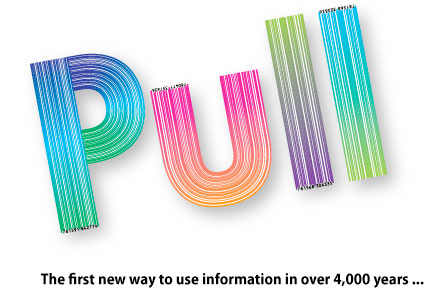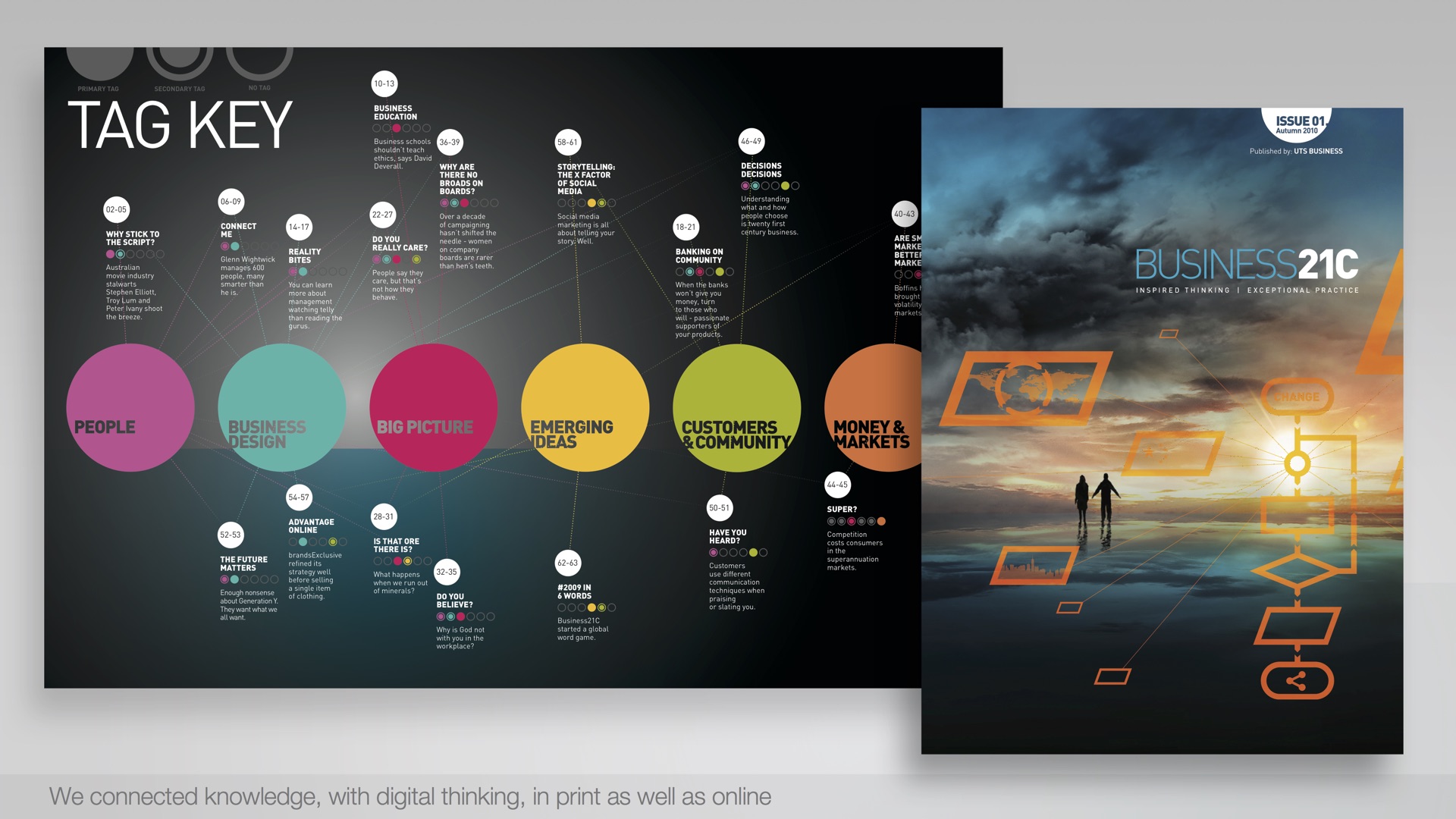The internet is changing. It’s becoming driven by structured data, and as the databases connect, computers will be able to make rule-based assumptions and take action on our behalf, as individuals, and businesses. This interconnection is often referred to as ‘the semantic web’, and one of the features of it is a seeming ability for the web to use our information and draw in other relevant connections. I’ve written about this phenomenon as The thinking web.
David Siegel’s book Pull: The power of the semantic web to transform your business, offers a perspective on the impact and potential behind this shift. His key message is that the internet has grown up as a push-based system: a ‘search for and get sent’ model in which a person looks online; finds a match; the business checks their stock; calls a supplier; and sends it to the user. This will now become pull-based. Driven by the information we upload, things will come to us automatically. Siegel calls this The Performance Economy – a world of ‘getting what we need when we need it’. As he says, ‘Pull leads to performance. Just as pulling metadata aligns your customer’s data with yours, in the performance economy, your company’s economics are aligned with your customer’s. While the push economy is based on process, the performance economy is based on outcomes.”
In the ‘push’ model a delivery item is ordered, then addressed and sent to a specific location; tax returns are completed and filed. But with ‘pull’, if the shelves are nearing empty the replacement products are automatically ordered; a delivery item is told our identity and it seeks us out through co-operative delivery networks; and our tax returns become live transactional data exchanged with the tax department.
Privacy and security are clearly massive concerns for this vision of the future. But Siegel sees these issues being solved by the creation of personal data lockers. Stored online, Identity 3.0 lockers hold everything there is to know about us and our preferences and possessions. And amidst this ‘personal ontology’ are our privacy settings, which let medical practitioners alone see our health story or the online car market to see our desired new vehicle.
Inevitably Siegel embarks on some futurology to illustrate the potential that he’s explaining. He speculates that we are only one percent along the path to this transition, and that US$1 Trillion of inefficiency each year could be removed from the US economy. And he feels that it paves the way for revolutions in health reform, self-building legal frameworks, Fair Tax, and totally new business practices and customer relationships.
“Pull” (the book) is an informative and highly accessible read for such a complicated set of ideas about our technological future. Siegel is not only passionate and committed to the idea, but even uses the book as a call for like-minded people and investors to help him make it happen.
David Siegel
Pull: The power of the semantic web to transform your business
Hardcover: 288 pages
Publisher: Portfolio Hardcover; 1 edition (December 31, 2009)
Language: English
ISBN-10: 1591842778
ISBN-13: 978-1591842774
http://www.amazon.com/Pull-Power-Semantic-Transform-Business/dp/1591842778

Scott David leads User Experience strategy and design at the World Economic Forum, across their digital platforms for data-driven knowledge and communities of global leadership.













